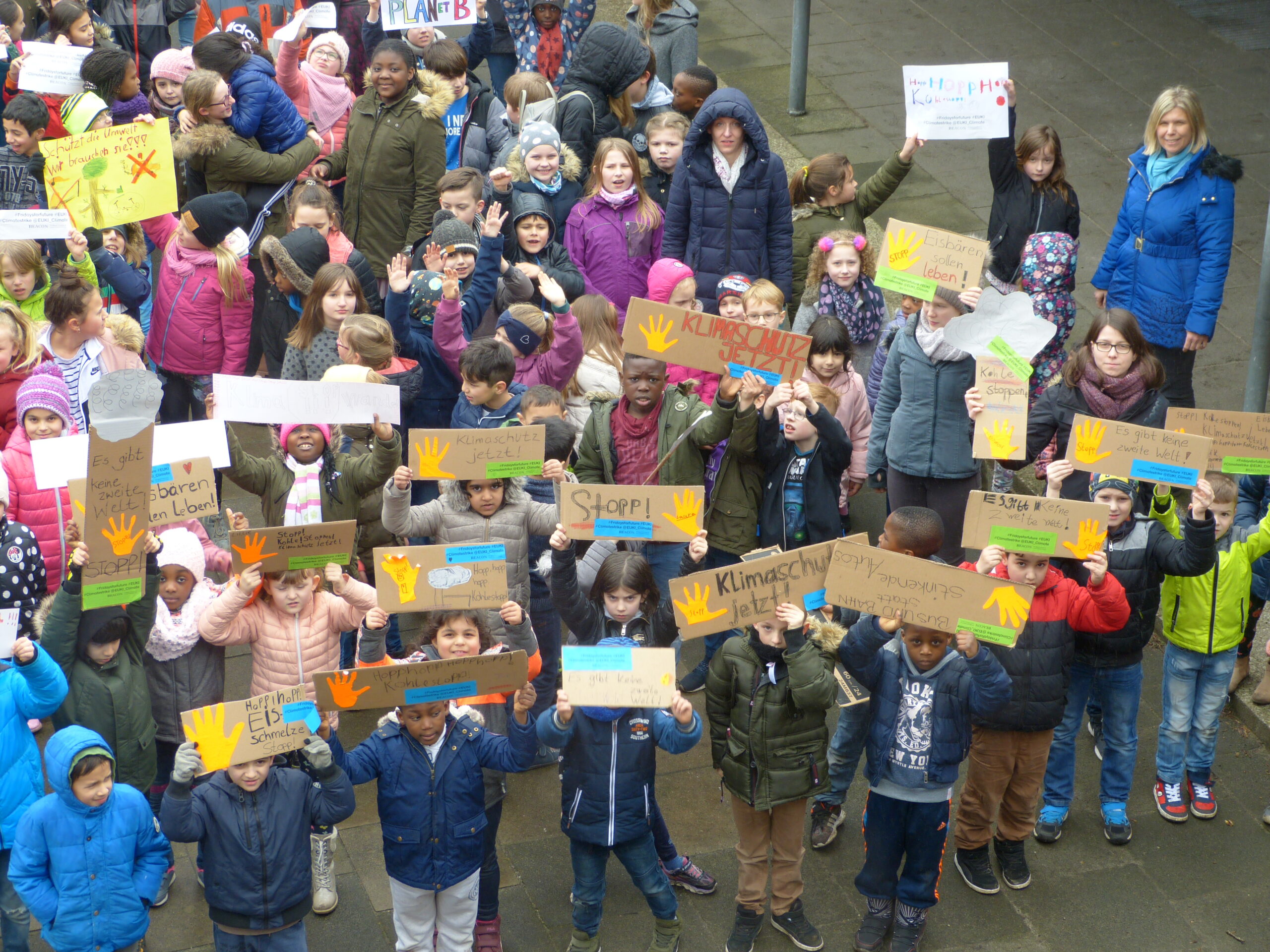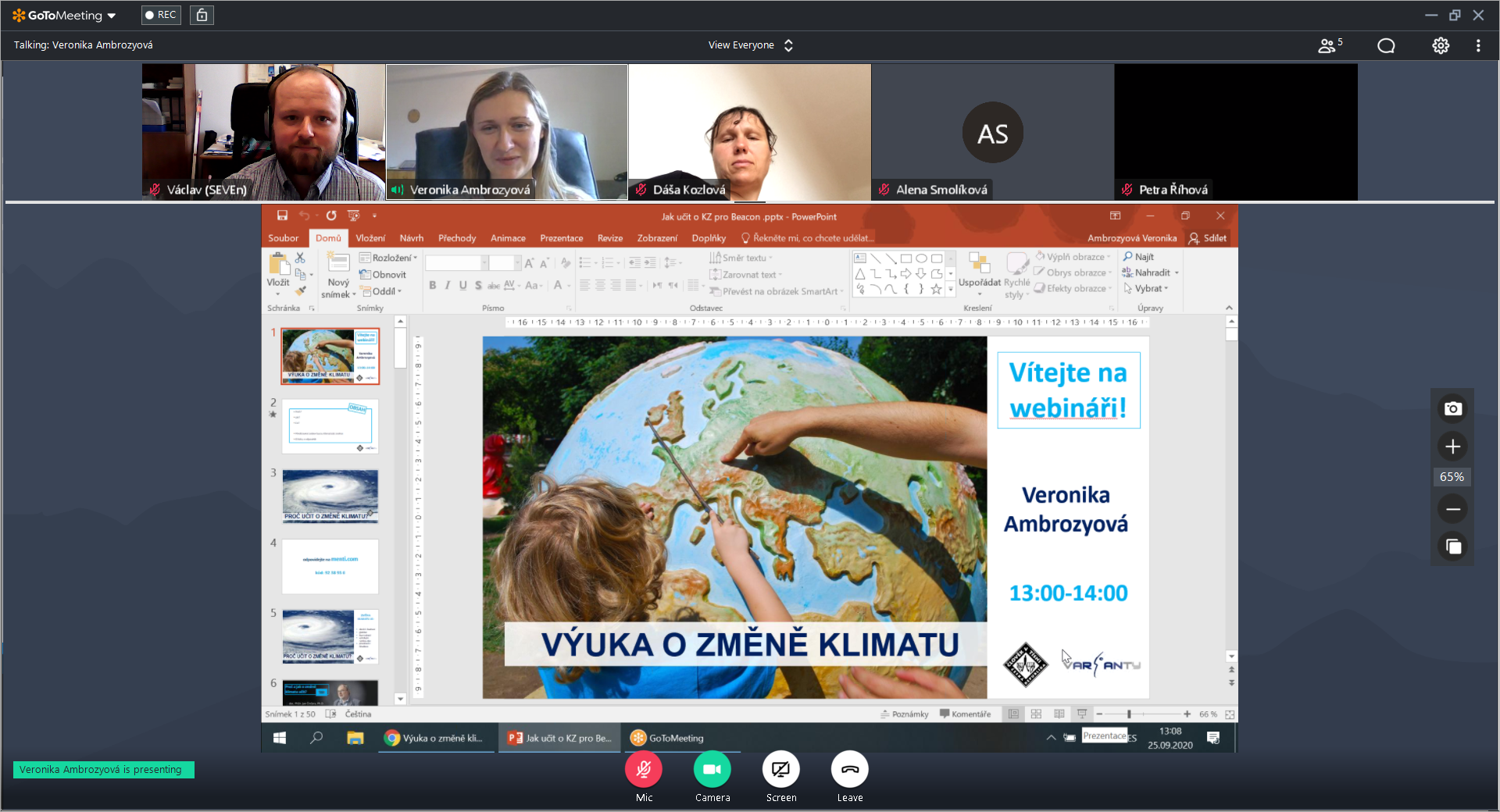Advancing Climate Action and Education for Sustainable Development
On 24-25 September, representatives from schools and educational institutions as well as research and training institutions and local administrations in the Czech Republic, Romania, Bulgaria, and Germany came together to gain a deeper understanding of Education for Sustainable Development (ESD) and the link to climate action in a virtual BEACON workshop.

After opening remarks by Sarah Heft of BMU on the first day, 31 participants tuned in for a discussion addressing fundamental questions such as what is the goal of ESD and the implementation thereof in relation to climate action? Five panelists provided their unique perspectives:
- Dr. Anne-Katrin Holfelder, Institute for Advanced Sustainability Studies in Potsdam, Germany
- Dr. Ilinca Pandele, AHK, Romania
- Dr. Jiri Kulich, Chairman and member of the Committee for Education for Sustainable Development of the Government Council for Sustainable Development, Czech Republic
- Dimitar Zhelev, Senior Assistant Professor at Sofia University, Faculty of Geology and Geography, Bulgaria
- Peter Schilken, Energy Cities and partner in the BEACON project, Germany/France
Further Information
The panel discussion was followed by smaller, country-specific breakout sessions amongst participants from the three target countries. Here they focussed on identifying barriers to implementing ESD in their country context as well as ways to overcome these. The discussions were inspired by good practice examples from across Europe. Through these discussions and with the input from experts, it became clear that ESD is a useful pedagogical framework for addressing climate action. Since ESD promotes concepts such as critical thinking, solidarity, foresight, and empowerment and is both participatory and interdisciplinary in nature, it is an ideal framework in which to embed complex topics related to climate action. Dr.Anne-Kathrin Holfelder explained that “young people should feel that they can shape the future” and that ESD lays the foundation for youth empowerment.
On the second day of the event, three separate country workshops took place simultaneously in which different sub-topics of climate action and education for sustainable development were discussed.
Bulgaria
Linking to the discussion on barriers the previous day, the Bulgarian participants, experts, and BEACON partner NTEF focused on climate neutrality and the obstacles they face incorporating the topic into schools. They discussed further how the obstacles could be mitigated and what teachers can already start doing to promote climate neutrality. Some of the largest barriers include the discrepancies in lifestyle/quality of life between smaller towns and large cities as well as the lack of support from school administrations and/or parents. Participants mentioned that European ideas about climate neutrality must be ‘translated’ to the local Bulgarian context, so people can better understand why it matters to them personally.
Romania
The Romanian group led by SNRB dived deep into how ESD can be implemented and how related topics can be digitised to raise the interest of students and other stakeholders. Specifically, they brainstormed ways to make these topics more accessible and incorporate them into the curricula despite the pandemic. For example, an app could be developed that integrates topics like climate change, energy efficiency, online classes, competitions, quizzes, or best practices. The app could also serve as an online platform that integrates classes from different schools and the open classes from BEACON. The participants of the Romanian group will further develop ideas for the app and present them at the BEACON-development workshop in October.
Czech Republic
The Czech participants and BEACON partner SEVEn worked with Veronika Ambrozyová of the NGO People in Need and focussed on why and how to teach climate change. In the discussion, the participants shared tips and tricks as well as their experiences in the classroom.

BEACON’s work in schools continues in the last quarter of 2020 with virtual, cross-border study tours and further workshops towards developing an incentive system for energy savings in schools. Stay tuned for more updates.
